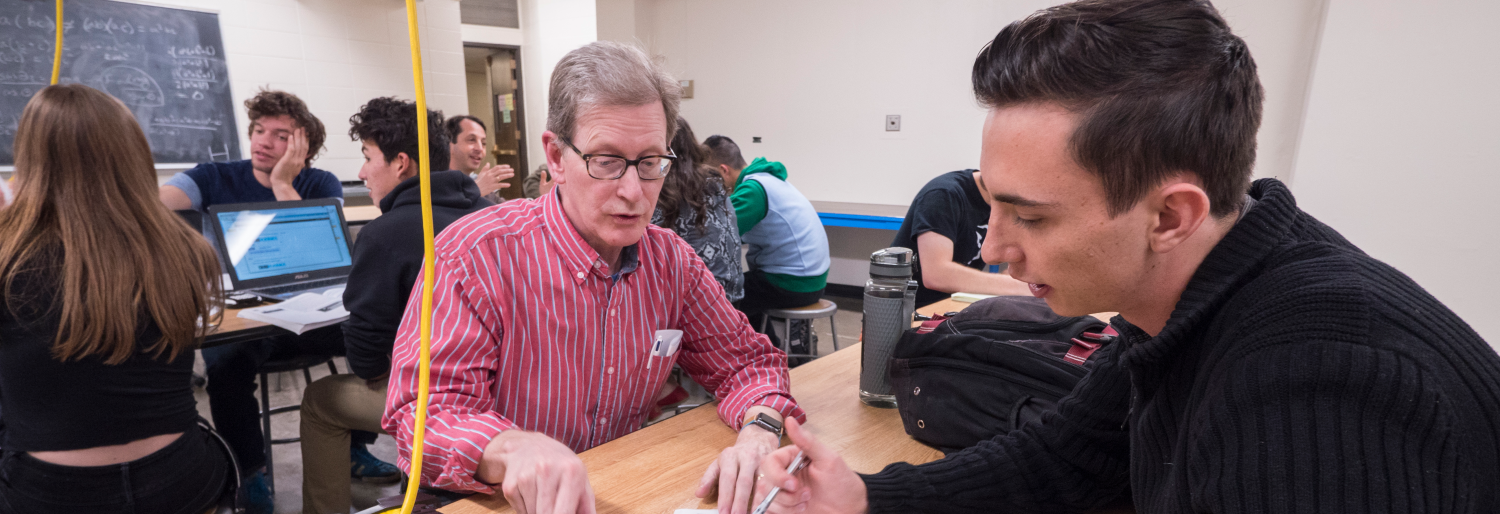Honor Code for Faculty and Staff

The Honor Code allows academic integrity to flourish by recognizing the importance of trust, respect and responsibility.
Students are expected to follow the Honor Code by not participating in academic dishonesty, which can include plagiarism, cheating or helping another student gain an unfair advantage. But when students are new to college, overwhelmed by the new environment or in a rush to get things done, they may unintentionally engage in academic dishonesty. There are things faculty and staff can do proactively to help ensure that students are not making these mistakes.
Honor Code Policies and Procedures
- Review the Honor Code.
- Report a suspected violation.
- Honor Code statement required in all syllabi.
Help students understand the Honor Code
Remind students of the standards they are held to
Encourage your students to review CU’s Honor Code. You may also consider reminding your students about the impact of violating the Honor Code. Here are some examples that you could communicate to your class:
- Recognize that CU faculty have a responsibility to report academic misconduct.
- Engaging in academic misconduct can negatively affect others.
- Preserving your integrity and character are more important than your semester grades.
Explain what Honor Code violations may look like in your class
Inform students about Honor Code violations at the beginning of the semester and before big projects or exams. Here are some situations where you would want to give clear expectations:
- Are tests open-book? What resources are students allowed to use during those open-book exams?
- How similar can students' answers be if they shared information when working together on a project?
- During an online project or exam, are students allowed to talk to a classmate over Zoom while screen sharing?
Inform students of academic dishonesty consequences
Helping students understand the gravity of violating the Honor Code before they cheat or plagiarize can improve their chances of making honest decisions. SCCR focuses on education as opposed to punishment. Each case is determined based on its unique factors. However, common non-academic outcomes include:
- Seminars
- Restorative Justice
- Written warning
- Honor Code probation or suspension
View the non-exhaustive list on the Resolution Outcomes page.
If you would like to further educate your students or department, SCCR has presentations on various topics including what the Honor Code is, how to file an Honor Code report, and common cheating and detection. SCCR can also review syllabi and give feedback. Email SCCR to schedule a presentation that meets the specific needs of your class or team.

Faculty are expected to submit a report to SCCR when they are aware of or suspect an Honor Code violation. SCCR will only accept these referrals within 40 days from the date that the faculty member discovered the suspected violation. This helps protect students’ due process rights and ensure cases are resolved in a timely manner.
Here is information to include in an Honor Code report:
- Who violated the Honor Code.
- The behavior or action you observed or found while grading that caused you to suspect that a violation occurred.
- When the violation happened and when you discovered it.
- Which class the violation occurred in.
- The course syllabus.
- Any supporting documentation, such as the TurnItIn report, Canvas access logs, similar exams or assignments, answer keys or i-clicker reports.
Additional recommendations
When you are aware of or suspect an Honor Code violation, speak to the student before reporting the incident. SCCR also recommends clearly explaining what you think may have happened and what evidence you have to support the allegation. It can be hard for a student if the first time they learn of an allegation is in an email notification from SCCR. Letting the student know beforehand also advises them to be on the lookout for a communication from SCCR.
Faculty and staff should make sure students have the opportunity to respond by asking the student what happened. After that discussion, let them know how it will impact their grade, whether you will report the violation to SCCR if you still believe academic dishonesty occurred and what the student can expect next.
The resolution process
Resolution meeting notice
When SCCR receives a report, we review all of the information submitted and send a letter to the student indicating they have been reported to the Honor Code. The letter includes a brief statement explaining the allegation and requests a time for the student to meet with a resolution specialist.
The resolution meeting
The resolution meeting that students attend is not a trial. It is a 1:1 meeting with their resolution specialist, who is there to guide students through the resolution process. Since the resolution process follows due process, this meeting is a chance for the student to share their perspective on the allegation.
Honor Code Advisory Board
After the resolution meeting, the case will be brought to the Honor Code Advisory Board, and a decision about responsibility and any non-academic outcomes, if appropriate, will be determined. SCCR will send a letter to the student and reporting faculty member outlining the decision.
Determining grade impacts
Faculty retain the sole authority to determine appropriate academic outcomes.
Honor Code statement required in all syllabi
All students enrolled in a University of Colorado Boulder course are responsible for knowing and adhering to the Honor Code. Violations of the policy may include: plagiarism, cheating, fabrication, lying, bribery, threat, unauthorized access to academic materials, clicker fraud, submitting the same or similar work in more than one course without permission from all course instructors involved, and aiding academic dishonesty. All incidents of academic misconduct will be reported to the Honor Code (honor@colorado.edu; 303-492-5550). Students who are found responsible for violating the academic integrity policy will be subject to nonacademic sanctions from the Honor Code as well as academic sanctions from the faculty member. Additional information regarding the Honor Code academic integrity policy can be found on the Honor Code website.
Didn't find what you were looking for? Visit our Frequently Asked Questions page for more information about the Honor Code or check out these additional academic resources.

